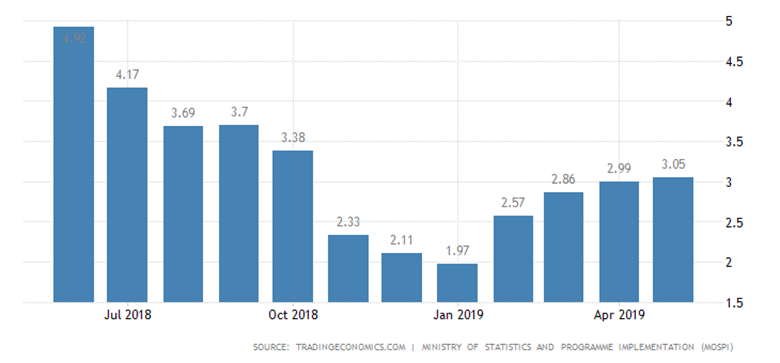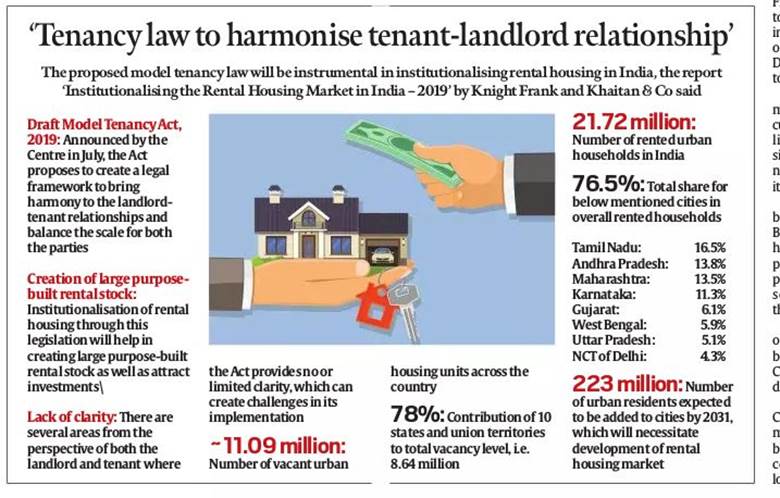



India and Netherlands launched the second phase of the LOTUS-HR (Local Treatment of Urban Sewage streams for Healthy Reuse plant) as a part of joint collaboration
- The project was initiated in July 2017 and aims to demonstrate a novel holistic (waste) water management approaches that will produce clean water, which can be reused for various purposes.
- The innovative pilot scale modular plant upon commissioning will treat 10,000 L sewage water per day.
- This pilot scale facility will employ multiple technologies so that the data generated at the pilot scale becomes a toolbox of treatment technologies for replication at other sites in Delhi as well as other parts of India.
- Department of Biotechnology, Ministry of Science and Technology, Government of India and Netherlands Organization jointly support the LOTUS-HR project for Scientific Research /STW, Government of Netherlands.
- Wet lab a Design challenge jointly supported by DBT-BIRAC and Netherlands Enterprise Agency.
- It is a novel way of competition, which provides a unique learning and networking platform for both Indian and Dutch young professionals.
- It seeks for innovative ideas to solve India’s urban water challenges and contribute to cleaning up India’s rivers.
Source: The Pib
In a tweet, Modi announced “Plogging at a beach in Mamallapuram”.
- ‘Plogging’ is a combination word formed from ‘jogging’ and ‘plockaupp’, which is Swedish for ‘pick up’.
- It refers to an emerging international trend, in which someone picks up trash while jogging or brisk walking as a way of cleaning up litter while also taking care of fitness.
- Erik Ahlström started the trend in Sweden in 2016.
- According to Ahlström, plogging for half an hour will burn at least 288 calories on an average as compared to 235 calories from regular jogging.
Reference: https://indianexpress.com/article/explained/this-word-means-plogging-6067539/
- Retail inflation in September accelerated for the eighth month in a row to 3.99% from a revised 3.28% a month ago as food inflation almost doubled to 5.1%.
- Headline inflation remained within the comfort zone of the Reserve Bank.
- Data released earlier in the day by industry department showed India's wholesale price inflation sharply decelerated to 0.33% in September.
- Inflation for manufactured items stood at -0.42% in September as against 0% a month ago.
Inflation: Inflation is Sustained increase in the general price level. It leads to fall in the purchasing power of money.
Different Indices like WPI (Wholesale Price Index), CPI (Consumer Price Index) measures inflation in India.
WPI (Wholesale Price Index): WPI is measurement of inflation based on Wholesale prices.
- Ministry of Commerce and Industry releases it.
- Headline Inflation is other name for it.
- It does not include services.
CPI (Consumer Price Inflation): CPI is measurement of Inflation at retail prices.
- Central Statistics Office (CSO) releases it.
- It has basket of Services and Manufacturing goods.
Headline Inflation: It is total inflation in economy. It includes price rise in food, fuel and all other commodities.
Core Inflation: Core inflation does not consider the inflation in food and fuel.

Nobel Economics Prize for 2019 has been awarded to Abhijit Banerjee, Esther Duflo and Michael Kremer "for their experimental approach to alleviating global poverty".
The Nobel Prize committee said the research conducted by this year’s laureates has considerably improved our ability to fight global poverty.
- This year’s Laureates have introduced a new approach to obtaining reliable answers about the best ways to fight global poverty.
- It involves dividing this issue into smaller, more manageable, questions – for example, the most effective interventions for improving educational outcomes or child health.
- They have shown that these smaller, more precise, questions are often best answered via carefully designed experiments among the people who are most affected.
- In mid-1990s, Michael Kremer and his colleagues demonstrated how powerful this approach could be, using field experiments to test a range of interventions that could improve school results in western Kenya.
- As a direct result of one of their studies, more than five million Indian children have benefitted from effective programmes of remedial tutoring in schools.
- Another example is the heavy subsidies for preventive healthcare that have been introduced in many countries.
- Banerjee and Duflo found out in their fieldwork that the poor often prefer to spend their extra money on televisions or festivals or tasty but expensive food.
- Their basic technique is borrowed from the world of medical research, through controlled trials.

The Ministry of Housing and Urban Affairs has drafted a ‘Model Tenancy Act’, 2019 that envisages to balance the interest and rights of both the owner and tenant and to create an accountable and transparent ecosystem for renting the premises in disciplined and efficient manner.
This MTA will be applicable prospectively and will not affect the existing tenancies.
- MTA stipulates a robust grievance redressal mechanism comprising of Rent Authority, Rent Court and Rent Tribunal.
- It has been proposed to cap the security deposit equal to a maximum of two month’s rent in case of residential properties and, minimum of one month’s rent in case of non-residential property.
- After coming into force of this Act, no person shall let or take on rent any premises except by an agreement in writing.
- The Model Act provides for its applicability for the whole of the State i.e. urban as well as rural areas in the State.
- Within two months of executing rental agreement both landowner and tenant are required to intimate to the Rent Authority about the agreement and within seven days a unique identification number will be issued by the Rent Authority to the both the parties.
- A digital platform will be set up in the local vernacular language of the State for submitting tenancy agreement and other documents.
- The copy of the draft Model Tenancy Act, 2019 has been uploaded on the website of this Ministry (http://mohua.gov.in/) for seeking comments from the public and other stakeholders latest by 01/08/2019.
- A copy of the draft Act has also been shared with the States/UTs for seeking their views/comments.
- Once finalized the Model Act will be shared with the States/Union Territory (UTs) for adoption.
- As per Census 2011, nearly 1.1 crore houses were lying vacant in the country and making these houses available on rent will complement the vision of ‘Housing for All’ by 2022.
- The existing rent control laws are restricting the growth of rental housing and discourage the owners from renting out their vacant houses due to fear of repossession.
Source: Indian Express
There will be no rumbling sound of railways as trains to go 'silent', thanks to this new technology. Indian Railways is planning to use the new Head on Generation (HoG) technology where the power will be drawn from the overhead electric supply, instead of the noisy power cars.
- At Present, there are two power generator cars, which emit fumes and make noise when the trains run.
- Indian Railway plans to replace the power generator cars with one silent generator car and a LSLRD (LHB Second Luggage, Guard & Divyaang Compartment).
- LSLRD will convert power from the overhead supply using the HoG technology.
- LSLRD will also have a specially designed cabin with additional seats for passengers and extra space for luggage.
- Indian Railways plans to convert all LHB trains to HoG system by the end of this year.
- Head on Generation technology taps power supply overhead power lines and distributes it to train coaches.
- Indian Railways has saved Rs. 800 crores every year by implementing new HOG technology.
From rifles to tanks, the Army is looking at setting up a real-time database on the condition and status of each of its approximately 30-lakh pieces of equipment.
- Seeks to achieve greater automation of the Corps.
- Connect all its workshops to an integrated smart network with real-time data analytics capabilities.
- The centralized network would allow us to access data about any equipment we have across the country in real-time.
- It would also have the capability to analyze that data and say which equipment is due for maintenance.
- At various levels, the functionaries will be able to see all equipment readiness.
- It will also help in engineering support functions.
- The data collected will lead to predictive analytics.
Delhi Chief Minister Arvind Kejriwal addressed a conference in Denmark through videoconferencing, with the Centre having denied clearance to a trip abroad.
- For a foreign trip, public servants need political clearance from the External Affairs Ministry.
- Since 2016, applications for political clearance can be made online, on a portal opened by the Ministry.
- These are processed and clearance issued through coordination among various Ministry divisions.
- During the previous UPA regime, the External Affairs Ministry denied political clearance for trips by then Chief Ministers TarunGogoi (Assam, Congress) to the US and Israel, and to Arjun Munda (Jharkhand, BJP) to Thailand.
- Chief Ministers, state ministers and other state officials also need clearance from the Department of Economic Affairs.
- For Union ministers, after getting political clearance from the External Affairs Ministry, additional clearance is needed from the Prime Minister, whether the trip is official or personal.
- Lok Sabha MPs need clearance from the Speaker, and Rajya Sabha members from the Chairperson (Vice President of India).
- For various ministry officers up to Joint Secretary Level, clearance is given by the minister concerned, after political clearance.
Reference: https://indianexpress.com/article/explained/to-go-abroad-what-clearances-do-cms-need-6067569/

© 2026 iasgyan. All right reserved